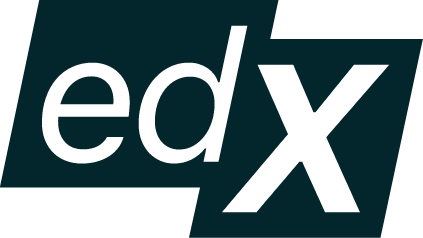
Marketing teams are central to the success of a business as they manage various tasks from building brand awareness and promoting products or services, to providing customer service and public engagement. Because of this, in a marketing interview you may be asked about your experience with market research, advertising, branding, digital marketing, and other areas. Additionally, you may be asked to provide examples of successful campaigns you have managed or worked on and to explain your thought process and approach to problem solving.
As a versatile career field, the interview process can be intimidating because it’s hard to anticipate what you’ll be asked. Our job is to make sure you are prepared to answer any question that comes your way.
This guide provides a list of sample interview questions and tips on building your responses to common interview questions in the marketing hiring process.
Interview questions by category
We have categorized the interview questions into three sections. Feel free to read straight through or jump to the sections that interest you most.
Tell me about yourself.
This is the most common and one of the most dreaded interview questions because it is so broad. Here is a useful formula for developing an answer to this question:
- Present — Talk a little bit about your current role or educational program, the scope of it, and perhaps a recent accomplishment.
- Past — Tell the interviewer about your background experience and education. Be sure to mention previous experience that’s relevant to the job and company you’re applying to.
- Future — Segue into what you’re looking to do next. Tell the interviewer why you’re interested in this role and why you’re a great value-add.
Your snapshot should show the interviewer how your experiences equip you with the skills to succeed at their company and why you are interested in the specific role.
Pro tip:
Your answer to “Tell me about yourself” could determine the direction of the interview. Typically, what the interviewer asks next will be a follow-up question based on your answer. It’s almost like you get to control where the interview goes! It is highly recommended that you prepare your answer to this question before each interview. Practice delivering your answer to ensure it is relevant and leads to follow-up questions that allow you to shine.
What are your greatest strengths? What do you consider to be your weaknesses?
Describing your strengths gives you an opportunity to brag about what makes you awesome and why you’re a great value-add to the company. Discuss 1–3 specific qualities that are relevant to this position and illustrate them with examples. Stories are always more memorable than generalizations.
When an interviewer asks you about your weaknesses, they’re trying to get a gauge on your self-awareness and honesty. Strike a balance by thinking of something that you struggle with but that you’re currently working to improve. For example, maybe you’ve never been strong at public speaking, but you’ve recently volunteered to run meetings to help you get more comfortable when addressing a crowd.
Why do you want this job?
Companies want to hire people who are passionate about the job, so you should have a great answer about why you want the position. First, demonstrate that you have researched the company by identifying a few key factors that make the role really attractive to you. Next, share what you love about the company and how it can contribute to your career growth. Keep your answer high-level, specific, and not overly personal. Show enthusiasm while explaining why you want the job.
Where do you see yourself in five years?
If asked this question, be honest and specific about your future goals. The hiring manager wants to know: a) if you’ve set realistic expectations for your career, b) if you have ambition, and c) if the position aligns with your goals and growth. Think realistically about where this position could take you and answer along those lines. If the position isn’t necessarily your dream job, it’s okay to say that you’re not quite sure what the future holds, but that you see this experience playing an important role in helping you make that decision.
What are your salary expectations?
The number one rule of answering this question is to prepare thoroughly ahead of time. Do your research on what similar roles pay by using websites like Payscale.com or Salary.com and reach out to your network. Be sure to take your experience, education, skills, and personal needs into account. From there, choose from one of three strategies to answer the question:
- Give a salary range — keep the bottom of your stated range toward the mid-to-high point of what you’re actually hoping to get.
- Flip the question — you can say something like: “That’s a great question. Can you share the range you have in mind for this role?”
- Delay answering — tell your interviewer that you’d like to learn more about the role or the rest of the compensation package before discussing pay.
Do you have any questions for me?
This is a frequent interview closer that gives you a chance to close out the narrative you began with when they asked the very first question, “Tell me about yourself.” If you use this time effectively, you can leave the hiring manager with exactly the impression you want them to have. To approach answering this one, think about your most important goals and values in the workplace. Show that you know what you are looking for by speaking clearly and confidently, and frame your questions around what you feel you need in order to be successful in this role.
Expert advice
“Don’t feel like you have to save all your questions for the end of your interview. If the topics you’re curious about come up throughout the interview, weave your questions in. This can help make the interaction feel more like a conversation with two active participants, and will allow you to demonstrate your engagement during the interview. ”
– Tramaine I., career expert at edX

Why are you interested in a career in marketing?
Ground your past experiences in the present by offering a picture of your goals as they relate to this position. Think about the skills you hope to develop throughout your marketing career. What is it about those skills that feel exciting or important to you? How do you hope to sharpen those skills in this role? Stay focused on your short-term career goals — the things you hope to accomplish in this particular role — but don’t shy away from connecting them to your long-term ambitions if that feels important to you.
Tell me about a marketing trend or campaign that you like?
In asking this question, the hiring manager wants to know what you think makes a good marketing campaign, and how you can bring those techniques to the company. Approach this question genuinely and analytically. Consider the campaigns you have reacted positively to from the perspectives of the consumer and the marketer. What was it about that campaign that worked for you? Assess how you might apply those positive attributes to future campaigns with this company. Show that you’re excited about the marketing techniques rather than the campaign’s subject matter.
How do you manage the launch of a new product?
This question presents a great opportunity to show off your expertise and demonstrate the skills you have highlighted on your resume and during the interview thus far. Discuss how you approach a campaign from the early stages of ideation through post-event debrief and long-term marketing plans. Provide specific examples from your past experiences or course projects. Point out successes you’ve had and challenges you’ve overcome. Mention the parts of the process that you tend to enjoy the most, and the areas you are working to gain more experience in. This will offer the hiring manager more insight into your goals. This is also a good time to ask whether this role will allow you to grow in the areas you enjoy, and strengthen the skills you are hoping to enhance.
Tell me about a product that you successfully marketed. What was your strategy?
When answering this question, draw from your prior experience to provide a concrete example. Use the STAR Method to structure your answer. (Learn more about the STAR Method in our Behavioral interview prep guide.) Choose a product that you worked on and outline the comprehensive strategy you employed. Begin by explaining the product’s unique selling points and the target audience you aimed to reach. Describe the thorough market research you conducted, highlighting the insights you gained and how they influenced your approach. Detail the specific tactics you used and any partnerships or collaborations that enhanced the campaign’s impact. Provide measurable outcomes to showcase the effectiveness of your strategy. If there were challenges along the way, share how you addressed them and adapted your approach. Lastly, emphasize the importance of continuous evaluation and optimization, focusing on your ability to analyze campaign performance and make data-driven adjustments.
Pro tip:
Embrace the opportunity to address behavioral questions even if you’re entering the field without prior professional experience. Showcase your grasp of concepts gained through your coursework and articulate how you intend to translate this knowledge into real-world applications. Draw on your diverse personal and professional background to craft a narrative using the STAR framework. By sharing concrete examples, you can demonstrate your achievements and contributions, thereby highlighting the valuable skills you bring to the table.
Tell me about a marketing campaign you conducted that wasn’t successful. What did you learn from that experience?
This question aims to assess your resilience and ability to learn from setbacks. When responding, use the STAR framework to share an example where you encountered a challenge or setback in your professional journey. Begin by briefly describing the situation, emphasizing the importance and impact of the task or project. Be transparent about the obstacles you faced and the factors that contributed to the setback. Highlight the lessons you learned from the experience and the specific actions you took to overcome the challenge. Discuss any skills you developed or improvements you made as a result.
What marketing channels do you have experience working in?
A company considering you for a marketing role anticipates your familiarity with various marketing channels. Share your proficiency in diverse avenues like social media, websites, email marketing, content creation, cold calling, and more. Tailor your response to emphasize the channels most aligned with the desired role, and feel free to discuss those that interest you the most. If your practical experience is limited, draw from the knowledge and skills gained during your coursework and projects. Highlight your ability to apply theoretical concepts to real-world scenarios.
Pro tip:
Showcasing your eagerness to learn, adapt, and contribute to the company’s marketing efforts is equally valuable as hands-on experience.
Which marketing software platforms do you have first-hand experience with?
When addressing this question, highlight your hands-on experience with marketing software platforms that are relevant to the role you’re pursuing. Begin by mentioning platforms that you have directly utilized in your previous roles, internships, or personal projects. For each platform, provide specific examples of how you employed it to achieve marketing goals. If there are platforms you haven’t used yet, express your enthusiasm for expanding your skill set and mention any efforts you’ve made to familiarize yourself with them. The key is to demonstrate your practical knowledge while also showcasing your openness to embracing new technologies and software tools to enhance your marketing capabilities.
Expert advice
“Use examples [of your work] and elaborate when you share a strength or experience. This will make your experience and skills more tangible in the interviewer’s eyes and they’ll have a stronger understanding of what makes you a great candidate for the role!”
– Deanna P., career expert at edX

Tell me about a time when you used large amounts of data to guide your decision-making?
Being comfortable with using data is very important for marketing professionals. Focus your answer on a specific instance where you harnessed substantial data to inform a significant decision. Use the STAR framework to structure your answer and ensure you fully answer the questions. Begin by describing the context and the importance of the decision you were facing. Highlight the data sources you’ve utilized, whether it was customer analytics, market research, website metrics, or any other relevant data points. Emphasize the insights you gained and how they directly influenced your decision-making process. Discuss the outcome of your decision and its impact on the project or campaign. The goal for answering this question is to provide a clear and concise narrative that highlights your ability to leverage data for informed decision-making and the positive outcomes that ensued.
What is your management style?
This question assesses how you see yourself as a leader and how you’ll lead others. When addressing this question, convey a well-balanced management style that combines strong leadership with adaptability to the needs of your team and the organization. Begin by stating your overarching management philosophy, emphasizing your commitment to fostering a collaborative and empowering work environment. The key to answering this question is sharing characteristics and skills that demonstrate your readiness to lead and inspire a successful marketing team.
Pro tip:
Is this your first official leadership role? When answering questions about your leadership style, recall your experiences in unofficial leadership roles within your team or organization. Highlight the skills, characteristics, and contributions that made you an effective leader in those instances. Share characteristics of leadership styles that you would like to emulate and why. By highlighting relevant qualities, experiences, and aspirations, you can showcase your potential as a future leader, even if you haven’t held a formal leadership role.
Tell me about a time when you had a tight deadline or budget constraint on a marketing project? How did you handle the situation and what was the outcome?
When faced with a tight deadline or budget constraint on a marketing project, a marketing manager should prioritize the goals of the project, be flexible to strategy adjustments that accommodate the restrictions, communicate with team members about the new situation, make data-driven decisions, use automation to maximize efficiency, and, if needed, seek out external help to ensure the project is completed on time and within budget. Use the STAR framework to share the details of your experience working under these conditions. Be specific when describing your challenges, actions, and the outcome of the project. Be sure to select an example that demonstrates all of the aforementioned priorities.
What do you think sets our brand apart from competitors?
When stepping into a managerial position in marketing, it becomes essential to acquaint yourself with the company’s branding and core values. When answering this question, demonstrate that you have done your research and are familiar with the company’s mission, values, and differentiators. Mention specific examples of how the company is unique, then discuss how you would use these unique aspects to create successful marketing campaigns.
Can you describe your experience in managing and collaborating with cross-functional teams to execute marketing campaigns?
As a marketing professional, you are required to work with teams across the organization to successfully manage marketing campaigns. The hiring manager wants to know if you possess the ability to collaborate effectively and lead teams to ensure the successful execution of shared goals. Using the STAR framework, share specific examples of how you have previously managed and collaborated with cross-functional teams in the past. Emphasize the positive results your team has achieved as a result of your collaborative efforts.
Expert advice
“It can be rewarding pursuing a career in this field but also quite challenging. Make sure that you have a passion for innovation and continue strengthening your interpersonal, collaboration and leadership skills as working within teams and across departments is fundamental in this field.”
– Nicole P., career expert at edX

How do you measure the success of your marketing campaigns? What KPIs do you typically focus on?
Marketing leaders must possess a solid grasp of measuring campaign success. Key performance indicators (KPIs) serve as a valuable tool to track progress and ensure campaigns achieve their objectives. Discuss KPIs you typically focus on and why, when measuring the success of your campaigns. Include specific examples of how you have used those KPIs to improve results in the past.
Why are you leaving your current organization?
This can be a tricky question to answer but the key is to always remain positive. When discussing your current company or environment, give a truthful reason for leaving, but do not bring negativity into the discussion. Instead, focus your answer on developing and expanding your career as a marketing leader. Share what you’ve learned about this potential new employer and how well it fits your goals, strengths, and experience.



